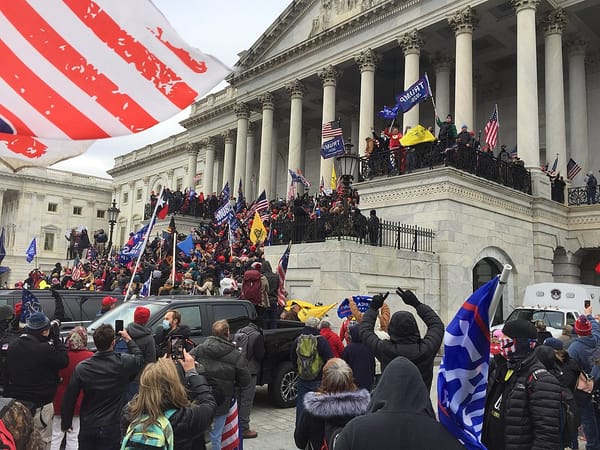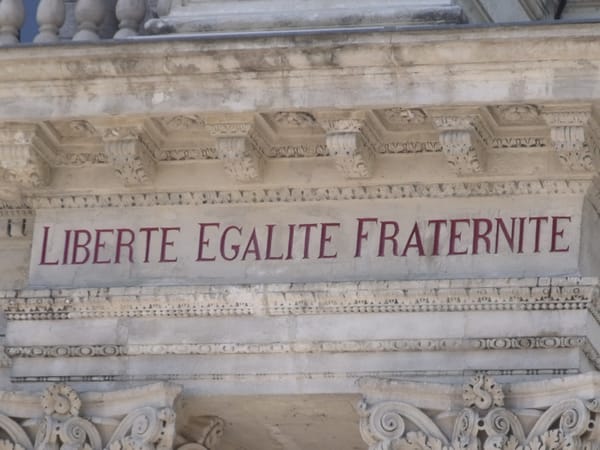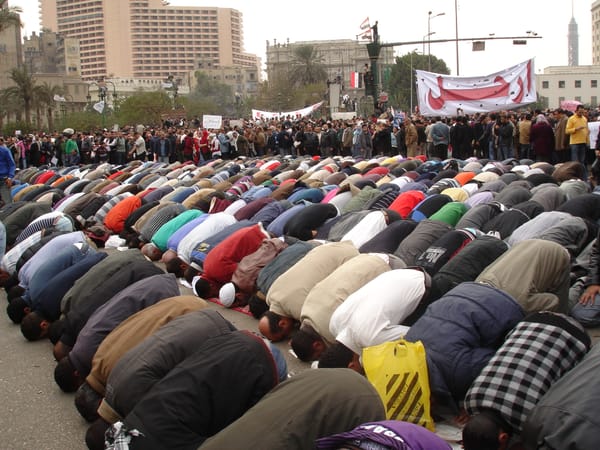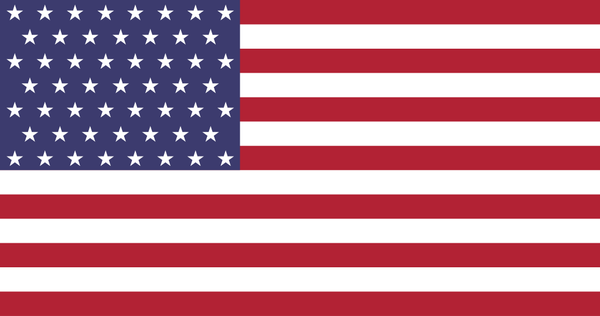Marx and the Liberal Tradition
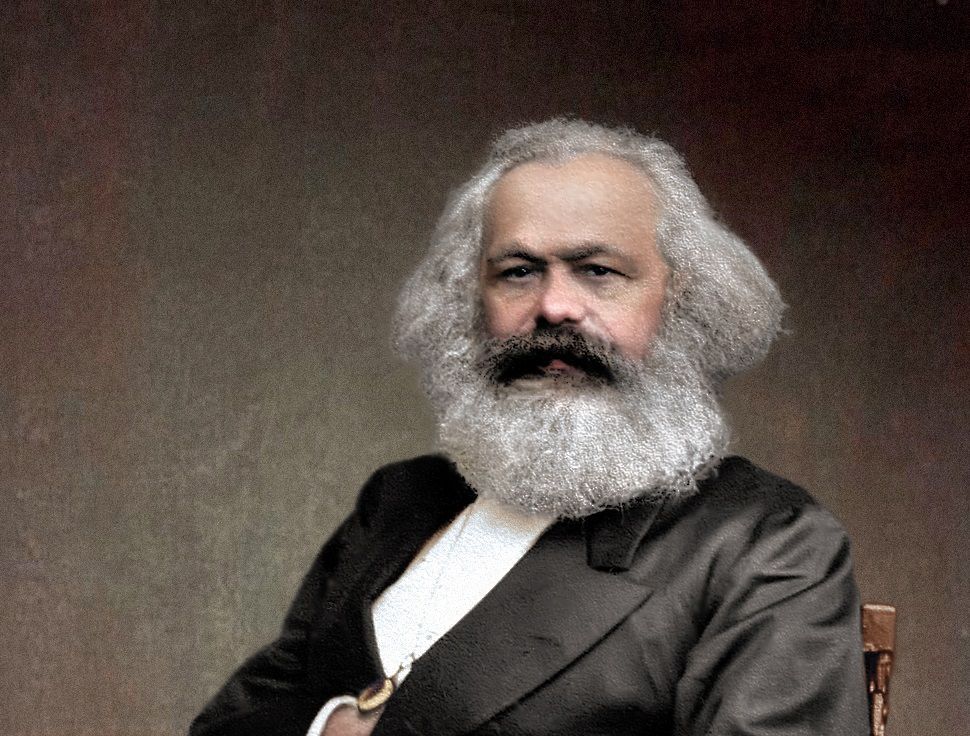
For a long time, the animosities of the Cold War ensured that Marx was treated by friend and foe alike as the unrepentant foe of liberal democracy. For his most scathing liberal critics, Marxism constituted a regression to a distinctly pre-liberal way of thinking: collectivist rather than individualistic, committed to historicism rather than universalistic, and worst of all irredeemably German. Ironically some of Marx’s most zealous defenders would agree with their counterparts. Well known authors like Louis Althusser and Slavoj Zizek see Marxism as a fundamental alternative to liberal doctrines. Where liberals offer ideological glosses to naturalize and defend the vulgarities of post-modern global capitalism, Marxism remains the philosophy which allows us to ever so slightly cast our illusions aside.
Whichever side you take, this view of Marx as stridently anti-liberal is coming under increasing critical scrutiny. Marxists like Terry Eagleton and Igor Shoikhedbrod have stressed the many ways in which Marx and Engels were both impressed and inspired by liberal politics and revolutions, while liberals like Amartya Sen and Chantal Mouffe stress the ongoing insights of the critique of capitalist political economy for understanding the power dynamics of our time. While some right wing liberals may naively wish to just exorcise the demon of Marx once and for all, the reality is that as long as capitalism exists so too will its greatest critic retain his relevance. Moreover, when one probes more deeply into the moral bases of Marxism, one finds it much closer to liberalism than the historic rivalry between the two would suggest.
The divide
One of the most remarkable achievements of Marx is that starting with an academic background in jurisprudence and philosophy, which he studied at the University of Berlin in the late 1830s, he turned to economics to clarify and deepen his ideas only after he was about 28 years old. It is a testimony to his marvelous gifts that he succeeded in becoming one of the great 19th-century figures of that subject, to be ranked along with Ricardo and Mill, Walras and Marshall. He was a self-taught, isolated scholar…Given the circumstances of Marx’s life, his achievement as an economic theorist and political sociologist of capitalism is extraordinary, indeed heroic.
John Rawls, Lectures on the History of Political Philosophy
Marx began his intellectual career as a Young Hegelian deeply committed to liberal causes in virulently illiberal 19th century Prussia. He came of age during the era of Metternich’s reaction, where the feudal aristocracy seemed to successfully be routing or at least containing the forces of liberalism on the continent. As a firebrand journalist dedicated to freedom of the press, expansion of the franchise, and an end to the authoritarian monarchy Marx naturally had much in common with the liberal radicals of his time.
Indeed he and Engels’s were giddy at the prospect of their inevitable victory over the forces of reaction, applauding the bourgeoisie’s “revolutionary” role and accurately claiming that “during its rule of scarce one hundred years, has created more massive and more colossal productive forces than have all preceding generations together. Subjection of Nature’s forces to man, machinery, application of chemistry to industry and agriculture, steam-navigation, railways, electric telegraphs, clearing of whole continents for cultivation, canalisation of rivers, whole populations conjured out of the ground—what earlier century had even a presentiment that such productive forces slumbered in the lap of social labour?” One would be hard pressed to find such zealous praise even from Steven Pinker.
But the course of true love never did run smooth, and Marx was also one of liberalisms’ most relentless critics. He took an ironists’ glee in pointing out how many of the rosy conceits of classical liberal theory—the yearning to shrink the state into obsolescence, that liberalism simply gave political expression to a timeless human nature, the Munchausean desire to both have stability and progress, order and freedom, patriotism and universalism—always run up against the hard material limitations of real-world practices and compromises. And he was always insistent that much as liberals had been hard on reactionary theories which presented authoritarianism as natural, inevitable, or divinely ordained we must be equally hard on liberal idolatry and the tendency to naturalize or mythologize the contingent beliefs and structures of what—after all—was a unique society which had emerged in mature form at the earliest in the late 18th century. This is an important point, and I will return to it below.
The liberal response to Marx has been equally mixed, with some like Rawls expressing great admiration for his social theory and critiques of capitalism and others like J.M Keynes deciding the best response to Marxism is to yawn and ignore it. The less effective criticisms offered by someone like Robert Nozick in his classic book Anarchy, State, and Utopia usually tend to define one prong of Marxism as the cornerstone of the whole edifice—a misconstrued iteration of Marx’s arguments about socially necessary labor time as the basis of exchange value is a usual culprit—which is then critiqued in the hope that Marxism as a whole will collapse with it.
In Nozick’s case, he ridicules the labor theory of value in a well known thought experiment about whether mixing one’s can of tomato juice in the ocean makes it theirs. While this thought experiment is accurate as an objection to the more classically Lockean account of property entitlements (which Nozick himself appeals to at points in his book) and its vulgar Marxist offshoots, it has less bite against the more sophisticated (but still very problematic) historical iteration developed by Marx in Capital. Part of Marx’s view is that labor comes to be conceived as the basis of value in the bourgeois epoch for complex historical reasons, and on that he was undoubtedly right as the presence of labor theories of value in Locke, Smith, and Ricardo demonstrate.
But liberals have always managed to launch several powerful objections of Marxist theory since its inception, taking aim at everything from the pretensions of the classical dialectical method to both describe the laws of motion of history from a scientific standpoint to the failure of Marx’s predictions about economic crises giving rise to an inevitable communist utopia. More analytical but perhaps theoretically pressing critiques can be directed against the ambitions of Marxists like Evgeny Pashukanis to eventually transcend politics through management once the means of production have become sufficiently developed to produce such a surplus of goods that political questions about who gets what become meaningless.
Commentators like Ronald Dworkin and Rawls have pointed out that this will never happen since even a very wealthy society will still have to deal with the problems of relative scarcity. Is it better to dedicate $10 billion to extend life expectancy by a year, or improve the quality of post-secondary education for millions? A very rich Marxist society may have gigantic resources to allocate to healthcare and education, but it would still have to make moral and political judgments about just how much we should prioritize either. More importantly it would require mechanisms for deciding on these questions, which means the idea of replacing political deliberation with technical management seems like a pipe dream.
Liberal and dialectical theory
A key division can be found in the way liberal and Marxist theory come down on certain philosophical fundamentals. It is an open question whether they can be reconciled.
Classical liberal theory tended to make unidirectional arguments that were often deliberately modeled off of the linear modes of reasoning pioneered by early-modern astronomers and physicists like Galileo and Isaac Newton. Hobbes’ famous references to geometry as the ideal model for critical reasoning before moving onto considerations of the “motions” that directed humankind, or Locke’s attempt to deduce the “laws of reason” and “nature” by moving from a description of the state of nature to civil society are exemplars here. Of course, as commentators going back to Aristotle knew, politics is not akin to the physical sciences and never has and never will benefit from the same level of exact precision. But there was a yearning to move from the most atomic and basic material possible upwards to more complex analyses of civil and political society possible through a sustained process that balanced logical rigor and with empirical exactitude.
Usually the atomic point was conceived as the single individual, who owned his body and labor and was not dependent on civil society or the state and consequently owed it nothing a priori.The movement of these liberal modes of reasoning was meant to not only describe but legitimate through naturalization and mythologization; Locke, Spinoza and others read back into natural human beings many of the features of humankind as they wanted and perceived them to be in the increasingly liberal culture of the era.
Questionable premises—such as Locke treating private property, a fundamantally legal relation, as something which exists in the absence of a coercive state—often led to questionable conclusions. But whatever its logical flaws, classical liberal theory had the effect of delegitimating the older, paternalistic ways of justifying society which made individuals dependent on the rules for protection and care, and putting forward a new, emancipatory ideal in its place. But one that, from a Marxist perspective, ran the risk of becoming just as much an idol of naturalization and mythologization as what it replaced.
Contemporary liberal theorists are more sensitive to these risks, in no small part due to over a century of critiques from Marxists and other commentators. Since at least the mature Enlightenment philosophy of J.S. Mill, theory construction is usually self-consciously reflective about putting forward a controversial moral ideal of humankind. Nevertheless the philosophical modes of reasoning still tend to proceed in linear fashion from basic principles upwards to complex and rich justifications of liberal democratic states; though the particulars remain a matter of significant debate amongst liberals. Rawls’s commitment to an abstract “pure procedural justice”—criticized by Amartya Sen as a kind of “transcendental institutionalism”—is a typical case.
Many of the lazier Marxist commentators have a bad habit of mechanically stamping these modes of liberal theorizing “idealism” or “ideology” and calling it a day. This is a reductive evasion that ignores a lot of what liberal theory could potentially offer the Marxist critique of political economy. But it is true that the dialectical tradition is often better at explaining the world outside of pure theory than its liberal competitors.
From a Marxist standpoint, liberals can fall into the trap of thinking unicausally about historical and political-economic dynamics; for instance asserting along with Gary Becker or Milton Friedman that humanity is best conceived as a sequence of self-interested individuals, that self-interested individuals pursue economic gain rationally at all costs, and the liberal state is natural to humankind because it reflects that. The heuristic device of the social contract, so popular with early liberals like Locke, reflects this in its effort to explain how one moves from describing a state of nature made up of self-interested individuals to legitimating a liberal political order constitued long ago and binding upon us now.
Of course the social contract never actually occurred, and the earlier liberals were well aware of this. But the linear mode of rationalization was nevertheless important in trying to demonstrate that the liberal state is what people would have chosen if they had been reasonable and had the option available to them. Consequently, any deviation from this model is seen as irrational or even unnatural—the fact that illiberal societies were the norm for the vast majority of human history is often left without sufficient explanation by earlier liberal theorists or chalked up to a mere lack of Enlightenment maturity on their part. This has an idealist quality in not accounting for the historical process which provided a fertile soil within which liberal ideas and institutions not only emerged, but had sufficient currency amongst the emergent middle classes to seriously vie for political power against the old aristocratic feudal order.
The dialectical materialist method pioneered by Marx approaches politics and society from a very different standpoint. For Marx, unicausal explanations of how society emerges always risk becoming ideological since they are typically invoked to give absolute weight to a controversial point of view. Marxist theory tends to move in a less linear and a more circular direction, starting from an interrogation of a small scale social phenomenon, analyzing it theoretically using the categories of dialectical thought, and then resituating it in a broader totality.
In this way, to use David Harvey’s expression, Marx’s thought is rather like moving from the center of an onion outwards, where each circular movement expands the scope of what we’re looking at. To appeal to a scientific analogy, it has more in common with the organic model of evolutionary development in Charles Darwin, an important theoretical influence on Marx, than the linear physics of Galileo or Isaac Newton.
From a Marxist standpoint liberals are unable to recognize how, since we exist in a multi-causal world defined by contingency, every form of political and economic organization produces unintended systemic effects and tendencies which aren’t just evolutionary but occasionally revolutionary. Some of these can be reinforcing and beneficial, but others can be destabilizing and even provoke crises. Marx’s name for the latter were contradictions, and it is important to be precise in understanding what he means here.
Crude commentators like Ben Shapiro sometimes seem to assume that when Marx discussed contradictions he was implying that we should just embrace contradictory hypotheses, which would of course be absurd. But what he actually meant is that oftentimes the ways we try and go about implementing and stabilizing a given form of political and economic organization can end up undermining it in the long run; often in ways we can predict and manage through reform, sometimes in ways we cannot which means there may be increasingly radical energies boiling.
For instance the liberal state was defined by numerous contradictions. On the one hand liberals claimed to value freedom and want as small a state as possible. But on the other hand, right wing liberals conceive of freedom first and foremost as the protection of a very expansive conception of property rights. But the more expansive a conception of property rights one wants to uphold, the bigger the state and the more coercion will be required. The same is true when it comes to facilitating the spread of markets across the globe on the one hand, while limiting the freedom of democratic majorities to limit inequality and insulating capital from political pressures.
In the 19th century when Marx wrote, he saw this contradiction being expressed in the efforts to shrink the power of the aristocracy and feudal authoritarianism, while at the same time the burgeoning liberal state quashed labor movements and advanced on immense campaigns of imperial conquest. When confronted with powerful progressive movements in the mid-20th century, the liberal state responded by offering welfarist concessions and allowing the spread of labor movements. This was intended to ameliorate the harshness of class conflict and give everyone a stake in maintaining the liberal system. As Ernst Mandel put it in his classic book Late Capitalism:
…The late capitalist state’s function of general organization, regimentation and standardization must be extended to the whole superstructure, and specifically to the sphere of ideology, with the permanent aim of attenuating the class consciousness of the proletariat. The actual extent to which these tendencies prevail, the extent to which their success is limited by the ultimate inability of the system to cancel or conceal its objective contradictions, and the extent to which the objective relationship between the contending classes-which depends, of course, on the objective liability of late capitalism to sharp crises-also shapes subjective class relations…
In the 20th and now 21st century, these kinds of compromises were no longer necessary given the political ascendency of conservatism after the 1980s due to the high levels of unemployment and inflation brought about by the OPEC crisis and growing public dissatisfaction with the political radicalism of the 1960s and early 70s. Consequently the welfare state came under assault, usually under the auspices of shrinking the state. But the fundamental contradiction between the aspiration of market society for maximal freedom and the coercion required to enforce ever starker inequities of property didn’t in fact disappear.
This is why Marxists would argue the Reaganite “shrinking” of the state nevertheless required massive increases in incarceration. Indeed by the end of the 20th century the state was no longer sufficient to do the job capital intended for it, meaning many of the same people who demanded a shrinking of the state also put into place vast new international institutions and regulatory agencies like the WTO to provide further fuel to advancing markets.
Reconciling liberalism and Marxism?
Marxists are very effective at pointing out how these kinds of contradictions emerge, not in spite of the efforts of liberals to prevent them, but in fact because of them. Note how every effort to resolve the contradiction between aspiring for freedom and enforcing strict divisions of property eventually fell apart, usually resulting in a new series of solutions that in turn produced further problems down the line. But Marx’s solution to this problem, that eventually the contradictions would become irresolvable and a new communist utopia would emerge, seems dangerously naïve in hindsight. In Politics and Vision, Sheldon Wolin rightly observed that Marx’s own account of the power of liberalism and capitalism to reinvent and preserve themselves seemed directly contrary to his predictions that sooner rather than later the bell would toll.
More importantly Marx spent far too little time ruminating on what features of liberal society dedicated egalitarians might want to retain. This is in part due to the limitations of his own dialectical method, which are in many ways the inverse of the liberal traditions. If liberals were given to the idealizing tendency of conceiving prescriptive reforms to improve society while ignoring how these tended to reflect the interests of a given class, Marx often seemed too given to optimistically hoping a sufficiently transformative revolution would eventually allow the creation of a political-economic system where any and all group- and interest-based politics would be eliminated. The characterization of Marx himself as a proto-authoritarian, so beloved on the political right, is wrong.
Marx himself supported virtually every major liberal and democratic reform in his day, and dreamed of the day where the state would “wither away.” But the utopian imaginations opened by the prospect of a society that had overcome the necessity of politics wholesale were dangerous, and he might have been far more cautious in catering to them. This leads us to a key difference between Marxism and liberalism. While Marx’s unpacking of the contradictions of liberal capitalist society and the way class power seeks to manage them holds an uncomfortable mirror up for liberals, it is also the case that many liberals were far more sensitive to the ongoing and intransigent risks entailed by political power than he was in his more rhetorically utopian moments. The attempt to reduce the insights of liberal theorists on this point to mere class prejudice or ideology are misplaced.
The liberal insistence that certain fundamental rights should be put beyond the purview of state interference, including the demand for greater material equality, seems very apt in light of the catastrophic experiments with totalitarian management run by the Soviet Union and its satellites. Moreover, while the Madisonian belief that political power should be divided and limited has often rightly been criticized by Marxists as simply a means of preventing democratic majorities from challenging the power of property, it is also the case that undivided etatism is no solution. Marx’s own thoughts on this were impressively complex, but provisional; the most sustained account appears in the Critique of the Gotha Program and doesn’t amount to more than a few paragraphs where he points out that any new kind of society can be constructed wholesale but will be “stamped” by features of the old. In his essay “Socialism and Liberalism: Articles of Conciliation” Irving Howe was right to point out that many leftists simply ignore the problems entailed in pushing for democratization while warding off the dangers of majoritarian tyranny in a system where political power would be less divided and more responsive than it is in the liberal state.
Papering over these problems by throwing the word “radical” in front of everything isn’t sufficient. I would argue that a sufficiently fine-grained account of democratization which takes into account the liberal warniness of excessive concentrations of power through the creation of discrete but interacting democratic nodes might be the way to go. Possible options could be the project of radical socio-economic democratization, well discussed by the late Leo Panitch and Colin Leys in their recent book, which would entail moving away from party politics to more direct forms of citizen participation in affairs of state while still providing or even expanding meaty protections for individual rights. Reinvigorating the labor movement and building workplace democracy might be another.
What is needed to get behind these differences is a deeper account of the moral bases of both liberalism and Marxism, which I would argue are more similar than different. Marx was a modernist, late Enlightenment thinker who was firmly committed to the project of human emancipation and material flourishing. In this respect he is very much kin to the other mature liberal thinkers like J.S. Mill, John Rawls, and Martha Nussbaum, who also directed our attention firmly away from the limitations of the possessive individualist strains of classical liberalism. Where Marx enriched our conversation on this subject was directing attention away from the classical liberal concerns about what negative liberties allow people to live without interference, and directing it towards what capabilities people need to lead flourishing lives.
His correct intuition was that people who lead flourishing lives will not only be better off, but freer in the sense of having far more choices available to them to engage in diverse experiments in living of the sort any liberal thinker should applaud. On the other hand if liberals do indeed think that freedom and flourishing are important, it is crucial to ask whether they are indeed possibilities for everyone and in what respects the liberal state lets many of its citizens down by limiting or failing to amplify their fundamental capabilities.
There is no getting around these questions by hoping against hope that liberalism or Marxism will simply cease to exist. Nor should we want it to. One is reminded of the great dialectical joke in Thomas Pynchon’s The Crying of Lot 49 that the best conservative argument against capitalism is just how many Marxists it produces. But a system that didn’t produce critics is one that would not only stagnate, but rot. Given the ongoing economic crises and inequality that mark our time, an analysis of the links and divides between Marxism and liberalism remains as vital as ever.
Featured Image is Karl Marx

